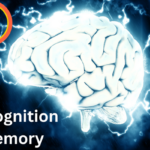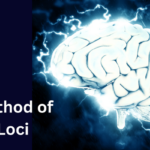Episodic Memory: Understanding the Basics, Types, and Related Concepts
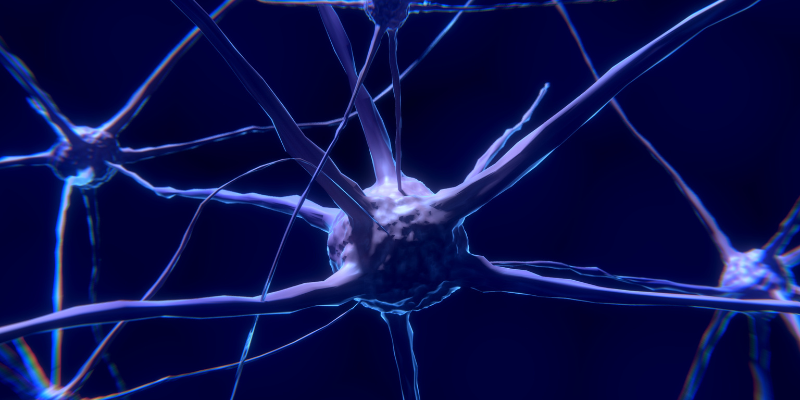
As humans, we often remember different life events, situations, and experiences. Episodic memory is the ability of an individual to remember past events in a particular context or situation. It is a unique form of long-term memory that allows us to recall specific episodes or events from our personal experiences. In this article, we will explore the basics of episodic memory, its types, and related concepts.
What is Episodic Memory?
Episodic memory is a type of long-term memory that allows us to recall specific personal experiences and events from the past, such as a birthday party or a family vacation. This type of memory is unique in that it involves remembering not just what happened, but also when and where it occurred. Episodic memory relies on the hippocampus and other brain structures to encode, store, and retrieve information about personal experiences.
This process involves linking various pieces of information together, such as sights, sounds, smells, and emotions, to create a cohesive memory. While episodic memory can decline with age or certain medical conditions, there are techniques and strategies, such as memory training and regular exercise, that can help improve episodic memory and maintain cognitive function. Understanding the intricacies of episodic memory is not only fascinating but can also provide valuable insights into how we perceive and remember the world around us.
How Episodic Memory Works
Episodic memory is a complex process that involves various areas of the brain working together.
- Episodic memory involves encoding, storing, and retrieving information about personal experiences and events.
- The process starts with the encoding stage, where information is perceived and transformed into a neural representation that can be stored in the brain.
- The brain regions involved in encoding episodic memories include the hippocampus, prefrontal cortex, and amygdala.
- Once the memory is encoded, it is stored in the brain for a period of time, with the exact duration depending on various factors such as the emotional significance of the event and the frequency of recall.
- Retrieval of episodic memories occurs when the brain searches for and accesses the stored information.
- During retrieval, the brain regions involved include the hippocampus, prefrontal cortex, and parietal cortex.
- The hippocampus is responsible for binding together different aspects of the memory, such as the time, place, and people involved.
- The prefrontal cortex helps with the retrieval and organization of the memory, while the parietal cortex assists with the spatial aspects of the memory.
- Episodic memory can be affected by various factors such as aging, stress, and neurological disorders.
- To improve episodic memory, strategies such as repetition, association, and visualization can be employed.
By understanding how episodic memory works, we can better appreciate the importance of this type of memory in our daily lives and take steps to improve it.
Unlock Your Brain’s Potential with Neurodrine: The All-Natural Way to Boost Mental Clarity
Types of Episodic Memory
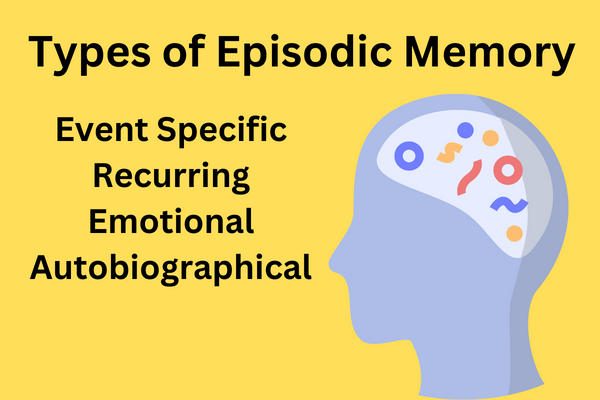
Episodic memory can be further divided into different types based on the types of experiences or events being remembered. One type is called “event-specific memory,” which refers to memories of unique events that occurred at a specific time and place, such as a birthday party or a wedding. Another type is “recurring memory,” which involves remembering events that occur repeatedly over time, such as a daily commute or a weekly meeting.
“Emotional memory” is yet another type of episodic memory, which involves memories that are associated with strong emotional experiences, such as the birth of a child or the loss of a loved one. Finally, “autobiographical memory” is a type of episodic memory that refers to memories of personal experiences and events that shape an individual’s sense of self and identity.
Understanding the different types of episodic memory can help individuals better understand how memories are formed and retrieved, and how they can be improved through memory training techniques.
Brain Structures Involved in Episodic Memory
Episodic memory, the type of memory responsible for remembering specific personal experiences, is a complex process that involves multiple brain structures working together. The hippocampus, located in the temporal lobe, is a crucial structure for the formation and retrieval of episodic memories. It plays a key role in the encoding and consolidation of new memories, as well as in the retrieval and reconstruction of past experiences.
The prefrontal cortex, which is involved in a wide range of cognitive functions, is also important for episodic memory, particularly in working memory processes and in the organization and retrieval of memories. Other structures involved in episodic memory include the amygdala, which is important for emotional processing and the association of emotions with specific memories, and the parahippocampal gyrus, which is involved in spatial processing and contextual cues.
Together, these brain structures work in a coordinated fashion to support the encoding, consolidation, retrieval, and reconstruction of episodic memories, allowing us to remember important personal experiences and events in our lives.
Encoding and Retrieval Processes in Episodic Memory
Encoding and retrieval processes are essential components of episodic memory, allowing individuals to store and recall personal experiences and events. Encoding refers to the process of transforming incoming information into a neural representation that can be stored in memory. This process involves a complex interplay between sensory input, attention, and working memory. The sensory input is first processed by the sensory cortex, which then sends the information to the hippocampus for further processing and consolidation. Attention and working memory play a crucial role in this process, as they help to selectively focus on relevant information and maintain it in memory for a brief period.
Retrieval, on the other hand, refers to the process of accessing and recalling stored information from memory. This process involves a complex interplay between the prefrontal cortex, the hippocampus, and other brain regions. The prefrontal cortex is responsible for initiating the retrieval process, while the hippocampus plays a critical role in reinstating the original context in which the information was encoded. Other brain regions, such as the parietal cortex, are also involved in this process, helping to integrate different aspects of the memory into a cohesive whole.
Overall, the encoding and retrieval processes are critical for the functioning of episodic memory, allowing individuals to store and recall personal experiences and events. Understanding these processes can be helpful in developing strategies to improve memory and enhance the ability to recall important information.
Factors that Affect Episodic Memory
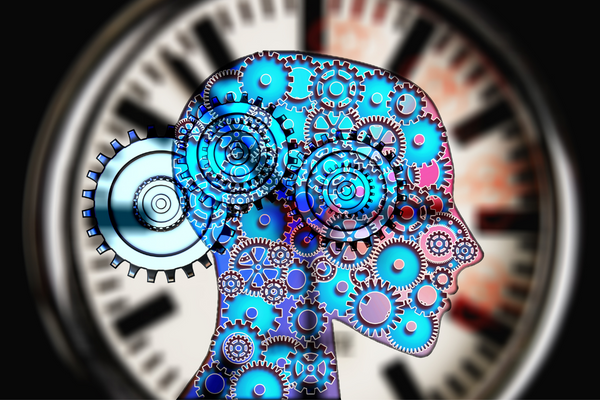
Episodic memory is a complex cognitive process that is influenced by a variety of factors. Some of the most important factors that affect episodic memory include:
- Age: Episodic memory tends to decline with age, particularly after the age of 60. This decline may be due to changes in the brain or other health conditions that can affect memory function.
- Emotional significance: Emotionally significant events are more likely to be remembered than neutral events. This is because the emotional arousal associated with such events enhances memory consolidation.
- Sleep: Adequate sleep is essential for memory consolidation, including episodic memory. During sleep, the brain consolidates memories and strengthens neural connections.
- Attention: Paying attention to an event is crucial for encoding it into episodic memory. If an event is not attended to, it is unlikely to be remembered.
- Distractions: Distractions can interfere with attention and memory encoding, making it more difficult to remember episodic events.
- Stress: Chronic stress can impair episodic memory function by interfering with memory consolidation and retrieval.
- Physical activity: Regular physical activity has been shown to improve episodic memory function by enhancing brain plasticity and reducing the risk of cognitive decline.
Overall, these and other factors can significantly impact the ability to form and retrieve episodic memories. By understanding these factors, individuals can take steps to optimize their episodic memory function and improve their overall cognitive health.
Unlock Your Brain’s Potential with Neurodrine: The All-Natural Way to Boost Mental Clarity
Relationship between Episodic and Semantic Memory
Episodic and semantic memory are two distinct types of long-term memory that are closely related. Episodic memory is responsible for our ability to recall personal experiences and events, such as the time and place where we first met someone or the details of a vacation we took several years ago. Semantic memory, on the other hand, is responsible for our general knowledge and understanding of the world around us, including concepts, ideas, and facts that are not tied to any specific personal experience.
Despite being distinct, episodic and semantic memory are interdependent and often work together to support our memory and learning processes. For example, when we learn new information, we often link it to our existing knowledge and understanding of the world, stored in our semantic memory. When we later try to recall this new information, our episodic memory helps us retrieve the details of the experience when we first learned it, such as where we were and what we were doing.
Moreover, research has shown that damage to one type of memory can also impact the other. For instance, individuals with damage to their hippocampus, a brain region critical for the formation and retrieval of episodic memories, may also experience deficits in their semantic memory. Similarly, individuals with damage to their prefrontal cortex, a brain region critical for semantic memory, may also experience deficits in their episodic memory.
Overall, while episodic and semantic memory are distinct, they are closely related and work together to support our memory and learning processes.
Differences between Episodic and Procedural Memory
Episodic and procedural memory are two types of long-term memory that serve different functions in our daily lives. Episodic memory is responsible for recalling personal experiences and events, such as the time and place of a specific memory, the people involved, and the emotions felt during that experience. In contrast, procedural memory is responsible for our ability to perform learned motor skills and tasks, such as riding a bike or playing an instrument.
One key difference between these two types of memory is that episodic memory is more conscious and can be intentionally recalled, whereas procedural memory is often automatic and difficult to put into words. Another difference is that while episodic memory is often associated with the hippocampus and other medial temporal lobe structures, procedural memory is more closely linked with the basal ganglia and motor cortex.
Additionally, episodic memory is more vulnerable to degradation and loss as we age or experience brain injuries, while procedural memory tends to remain relatively intact. Understanding the differences between these two types of memory can help us develop strategies to improve our memory recall and overall cognitive functioning.
Role of Emotions in Episodic Memory
The role of emotions in episodic memory is significant, as it can influence how memories are stored, retrieved, and remembered. Here are some key points to consider:
- Emotional events tend to be remembered more vividly and in greater detail compared to neutral events.
- The amygdala, a brain structure responsible for processing emotions, plays a crucial role in encoding emotional information into memory.
- The amygdala also interacts with other brain regions involved in memory formation, such as the hippocampus and prefrontal cortex.
- Emotional events can enhance memory consolidation, which is the process of stabilizing and strengthening memories over time.
- Emotions can also affect memory retrieval, with emotional cues often triggering the recall of associated memories.
- The relationship between emotions and memory can be complex and multifaceted, with both positive and negative emotions influencing memory in different ways.
- Emotions can also affect the accuracy of memory, with the intensity of emotions sometimes leading to distortions or inaccuracies in memory recall.
In summary, emotions can have a significant impact on episodic memory, influencing how memories are stored, retrieved, and remembered. Understanding the role of emotions in memory can be valuable for improving memory function and enhancing memory performance.
Episodic Memory and Aging
As we age, our episodic memory, which is responsible for our ability to recall personal experiences and events, can decline. This is due to a variety of factors, including changes in the brain’s structure and function, as well as natural wear and tear over time. Additionally, conditions such as dementia and Alzheimer’s disease can also affect episodic memory, making it harder for individuals to recall important life events.
However, it’s important to note that while some degree of decline is natural with age, there are ways to help maintain and even improve episodic memory. Engaging in regular physical exercise, eating a healthy diet, and getting enough sleep can all have positive effects on brain health and memory.
Additionally, engaging in mentally stimulating activities such as reading, playing games, and learning new skills can help keep the mind active and improve memory function. It’s important for individuals to pay attention to their memory as they age, and to seek medical advice if they notice any significant changes or concerns.
Are There Any Disorders Associated With It
Disorders associated with episodic memory are numerous and can have a significant impact on an individual’s ability to recall personal experiences and events. One of the most well-known disorders is amnesia, which is characterized by the inability to form new memories or recall past memories. This can be caused by brain damage, illness, or psychological trauma. Another disorder is Alzheimer’s disease, which is a type of dementia that affects memory, thinking, and behavior.
People with Alzheimer’s disease often experience difficulty with episodic memory, as well as other types of memory such as semantic and procedural memory. Other disorders associated with episodic memory include Korsakoff’s syndrome, which is caused by a deficiency of thiamine (vitamin B1), and traumatic brain injury, which can cause long-lasting deficits in memory function.
It is important to note that these disorders can have a significant impact on an individual’s daily life, and seeking professional help from a healthcare provider is essential for proper diagnosis and treatment.
Unlock Your Brain’s Potential with Neurodrine: The All-Natural Way to Boost Mental Clarity
Improving Episodic Memory: Techniques and Strategies
Improving episodic memory is possible through various techniques and strategies. One effective method is to engage in regular physical exercise, as studies have shown that exercise can enhance memory retention and recall. Another technique is to practice mindfulness meditation, which has been shown to improve attention, focus, and working memory. Additionally, getting enough quality sleep is essential for memory consolidation and retention.
It’s also helpful to use mnemonic devices, such as acronyms or visualization techniques, to help remember important information. Furthermore, breaking down complex information into smaller, more manageable chunks can also improve memory retention. Another useful strategy is to practice active recall, which involves actively retrieving information from memory rather than simply reviewing it. This technique can improve both short-term and long-term memory retention.
Finally, maintaining a healthy and balanced diet, including foods high in omega-3 fatty acids and antioxidants, can also support memory function. By incorporating these techniques and strategies into your daily routine, you can improve your episodic memory and enhance your overall cognitive function.
What Are the Applications
Episodic memory has numerous applications in various fields, from everyday life to scientific research. Here are some examples:
- Personal life: Episodic memory plays a crucial role in our daily lives, allowing us to remember important events, people, and places.
- Education: Effective learning and retention of new information depend on episodic memory, as students must be able to recall and apply what they have learned.
- Healthcare: The ability to remember past experiences is essential for healthcare professionals, as they need to recall important details about patient history and treatment plans.
- Scientific research: Episodic memory research has contributed to our understanding of how the brain processes and stores information. It has also helped scientists develop new treatments for memory disorders, such as Alzheimer’s disease.
- Legal system: Episodic memory can play a crucial role in the legal system, as eyewitness testimony and other forms of evidence rely on accurate recall of past events.
Overall, episodic memory is a fundamental aspect of human cognition with diverse applications in various aspects of our lives.
Frequently Asked Questions
Q: Can episodic memory be improved through physical exercise?
A: Yes, physical exercise has been shown to improve episodic memory in older adults. Exercise increases blood flow to the brain, which can enhance memory formation and retrieval. Regular aerobic exercise, such as walking, swimming, or cycling, can also reduce the risk of age-related memory decline.
Q: What are the brain regions involved in episodic memory?
A: Episodic memory involves several brain regions, including the prefrontal cortex, hippocampus, and amygdala. The prefrontal cortex is involved in attention and decision-making, while the hippocampus is crucial for memory encoding and retrieval. The amygdala is responsible for emotional processing and can enhance or impair memory formation and retrieval.
Q: How is episodic memory related to semantic memory?
A: Episodic memory and semantic memory are closely related, and the retrieval of one type of memory can trigger the retrieval of the other type. Episodic memory is concerned with remembering specific events or episodes, while semantic memory is responsible for remembering facts and concepts. However, both types of memory are interconnected and can influence each other.
Q: Can traumatic brain injury affect episodic memory?
A: Yes, traumatic brain injury (TBI) can affect episodic memory, depending on the severity and location of the injury. Individuals with TBI may experience difficulties in recalling past events, forming new memories, or recognizing familiar people or places. Memory rehabilitation techniques, such as memory training or cognitive-behavioral therapy, can help improve episodic memory in individuals with TBI.
Q: How can visualization improve episodic memory?
A: Visualization involves creating mental images of the information, which can enhance memory formation and retrieval. When we visualize information, we engage multiple sensory modalities and create a more vivid and memorable representation of the information. Visualization can also help us associate new information with existing knowledge or experiences, which can improve memory recall.
Conclusion
In conclusion, episodic memory is a complex and multifaceted cognitive process that plays a fundamental role in our daily lives. This article has provided an overview of the basics of episodic memory, including its definition, types, and related concepts such as semantic memory and working memory. We have also discussed the brain regions involved in episodic memory and the factors that can affect its function.
Moreover, we have explored various techniques and strategies for improving episodic memory, such as exercise, mindfulness, and mnemonic devices. Finally, we have highlighted some of the practical applications of episodic memory in fields such as education, healthcare, and the legal system.
Overall, a better understanding of episodic memory can help us enhance our cognitive abilities and improve our quality of life. By incorporating some of the techniques and strategies discussed in this article into our daily routines, we can improve our episodic memory and enhance our overall cognitive function.


